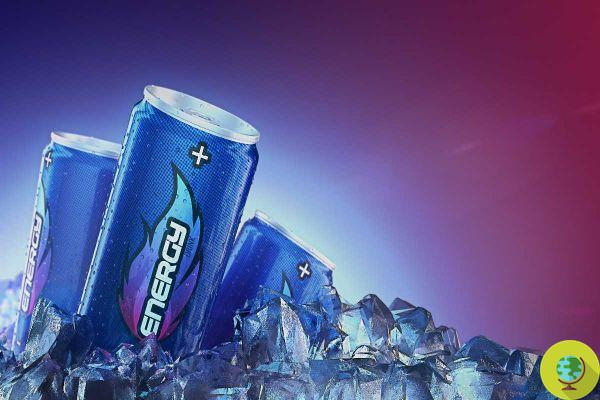
New research has revealed a link between the consumption of energy drinks and a deterioration in the health and behavior of children and adolescents.
Don't store avocado like this: it's dangerousA new study has confirmed that the regular consumption of energy drinks by teenagers could impact both their behavior and their health.
The study, published by the British Medical Journal, reveals that alarmingly high numbers of young people consume frequently drinks containing caffeine and sugar laden, defined even more dangerous than cigarettes. The investigation, conducted by researchers from the University of York and University College London, was launched after a government consultation that had proposed to prohibit the sale of energy drinks to children, a move that has not yet been implemented.
For the study, the researchers wanted to examine what type and how many energy drinks the UK teenagers were taking, and what the potential impact on their physical and mental health. Energy drinks are often marketed to reduce fatigue and improve focus, as well as to increase energy. A 250ml medium energy drink contains an amount of caffeine similar to a 60ml espresso.
Many of these also contain other active ingredients, such as stimulants, guarana e taurine, and sugar, although sugar-free options are often available as well.
Surveys found that between 13% and 67% of children around the world have drunk energy drinks in the past year. In the UK, there is further alarming data, which suggests that between 3% and 32% of young people have drunk an energy drink at least one day of the week; with boys drinking more than girls, and consumption likely increases with age.
According to the research, this consumption was also associated with frequent headaches, sleep problems, smoking, irritability and school exclusion; in addition, frequent consumption, ie drinking an energy drink on five or more days of the week, was associated with mental and physical disorders, compared to those who did not consume energy drinks.
These data support the idea that There is a link between the consumption of caffeinated energy drinks and worsening children's health and behavior, even if the cause is unclear. Although more research is needed, this recent analysis has uncovered important data and links between regular consumption of these beverages and adverse effects on the general well-being of children and adolescents.
Therefore, it is good to inform young people about the content of energy drinks, in order to encourage them to consume less; it is essential to implement an educational campaign to reduce its consumption.
Follow your Telegram | Instagram | Facebook | TikTok | Youtube
Photos: BMJ
Could it be interesting for you:
- 21-year-old develops heart failure from abusing energy drinks
- Energy drinks: the British government wants to ban them to minors
- Energy Drink: What Is Hiding Behind Energy Drinks?
- Energy Drink: How bad are energy drinks for the health of young people?
- Now it's official! These very popular drinks can increase the risk of stomach cancer
- The unexpected side effect of sugary drinks on your gut just discovered by scientists
- Sugary drinks increase the risk of premature death, especially in women. I study
- No juices, vegetable drinks or other soft drinks: up to 5 years old, children should only drink water and milk (preferably skimmed)


























